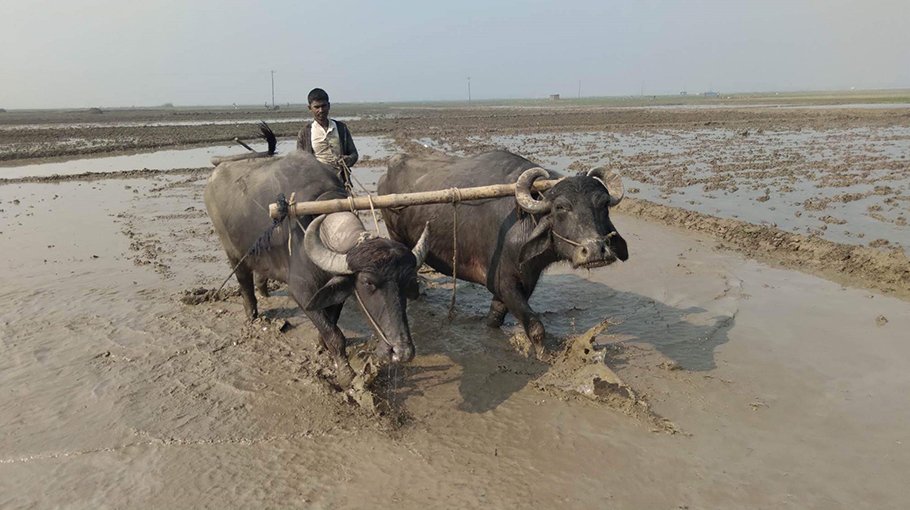Boro cultivation starts in Pabna braving cold waves

Farmers of Chatmohar in Pabna have started early Boro cultivation. Ignoring the harsh winter of of this year, some are plowing the land, some are leveling the land with a ladder. Some are lifting saplings while others are planting saplings in the ground. Irrigation machine owners are busy irrigating the lands. This picture is from Boilmari area of Chatmohar Upazila.
According to Chatmohar Upazila Agriculture Office sources, during the current Boro cultivation season, the target of Boro paddy cultivation has been set on 9,200 (nine thousand two hundred) hectares of land in 11 unions of Chatmohar.
Planting has just started in some fields. In this area usually Bridhan-28, 29, 50. 58, 64, 81, 84, 89, 92, 96 varieties of rice are cultivated. Bangabandhu rice-100 variety has been added to this list. Besides, hybrid Ispahani, SL8H, Tej Gold, Doel, Tia and Brak varieties of rice are cultivated.
Ratan Hossain, a farmer of Bardanagar village of the Upazila, said that he has been cultivating Boro paddy for a long time. Cultivation of boro rice costs about 13,000 rupees per bigha land for seedling production, land preparation, leveling of land with ladder, transplanting, fertilizers, pesticides, weeding and harvesting. If the paddy is good, the yield is about 25 mounds. Somewhere one-fifth share and somewhere else one-fourth share of paddy has to be given to the owner of the irrigator. Those who cultivate other people's land on lease have to spend an additional 8 thousand rupees. Increasing the price of agricultural inputs in line with the price of paddy does not bring much benefit. Again the land cannot be kept uncultivated. Many farmers raise cattle. They have to grow Boro paddy in need of straw.
Chatmohar Upazila Agriculture Officer A.A Masum Billah said that early planting of rice seedlings has just started in the low lands this season. Farmers will plant Boro rice seedlings after at least one more month in those lands where winter Mustard is present. So far seedbeds have been created on 430 hectares of land. This activity is ongoing. At present the farmers are benefiting due to the good price of paddy.



